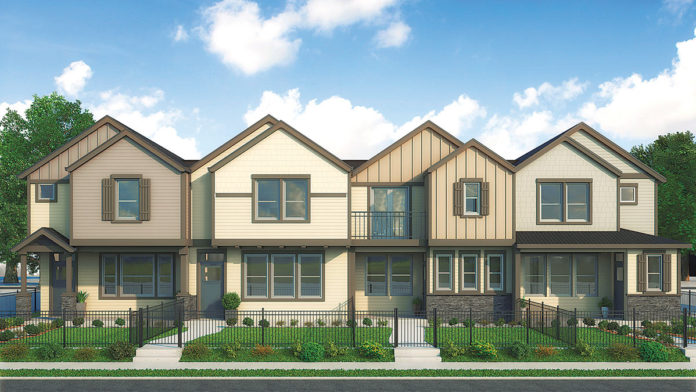During a regular Vancouver City Council meeting on July 8, city council members voted to approve a resolution declaring the city’s intent to impose a sales tax for affordable housing.
The decision stems from the recent passing of SHB 1406, which authorizes cities and counties to impose a .0146% sales tax for affordable housing. This new piece of legislation allows the city to impose that percentage of the sales tax that is to be credited to the sales tax received by the state, said the city’s Chief Financial Officer Natasha Ramras.
“This will be a brand-new revenue to the city of Vancouver,” Ramras said. “The purpose would be to fund acquiring, rehabilitating or constructing affordable housing, including new units of affordable housing within an existing structure or facilities that provide supportive housing services. It’s a pretty broad definition.”
“The first step in the process is the city would indicate that it’s interested,” Ramras continued. “This is not a new sales tax; it’s a portion of the sales tax already collected on all the sales within the city of Vancouver, but currently that portion of the sales tax goes to the state and by doing this we would be able to obtain some of it to fund this array of services. The next step would be to discuss where this funding would go and then actually pass the ordinance establishing the sales tax in the city of Vancouver.”
The law requires the city to adopt a Notice of Intent to impose the sales tax prior to Jan. 28, 2020, and an ordinance imposing the tax by July 28, 2020.
“I think the key point here is that the sales tax is credited against the state share of the sales tax, and does not result in any additional sales tax imposed against the consumer,” said Mayor Anne McEnery-Ogle.
Ramras said the total sales tax percentage in the city of Vancouver does not change after imposing this sales tax.
During the discussion, McEnery-Ogle also asked Ramras if any of the funds could be used for shelters. Ramras said they would need to take a legal look at the definition of affordable housing in the bill, but that they would come back with a better answer and definition prior to asking for the adoption of an ordinance.
Ramras said the earliest that the city can begin collecting the revenue from this imposed sale tax is in January 2020. She said the dollar amount that the city will receive on an annual basis for the next 20 years will be based on the retail sales within the city of Vancouver during 2019. The estimated amount will be finalized in August of this year and will include retails sales through the end of June 2019.
By design in the language of the bill, Ramras said the dollars generated by this new revenue source appear to be best allocated to supporting bonds because it’s the same dollar amount on an annual basis and does not change.
“This could lend itself to some kind of capital action,” Ramras said. “We estimate the annual revenue from this to be somewhere between $600-$630,000. With that annual revenue, if the city was to bond it, the city could generate approximately $7.5 million in bonds if interested in using this revenue source to support construction costs to build those facilities.”




